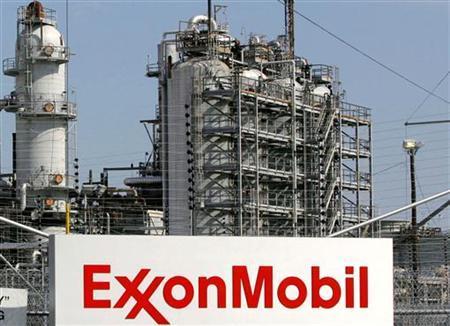
A Houston federal judge has denied Exxon Mobil’s request to reduce a nearly $20 million civil penalty for releasing millions of pounds of air pollutants from its Baytown refinery over the course of eight years.
In a nine-page ruling late Monday, U.S. District Judge David Hittner rejected Exxon’s contention he should recalculate the amount of money it saved by not making technological improvements – such as enhancing emissions monitoring with infrared imaging technology – that could have prevented thousands of emissions in violation of the Clean Air Act.
In an emailed statement, Exxon said it disagreed with and would appeal Hittner’s decision.
“Exxon Mobil’s full compliance history and good faith efforts to comply weigh against assessing any penalty,” said Suann Guthrie, an Exxon spokeswoman. “The court has recognized that none of the events in question actually or potentially harmed public health or the environment.”
In April, Hittner ordered Exxon to pay the penalty for releasing 10 million pounds of pollutants into the air from the Baytown refining and chemical complex from 2005 to 2013, handing a victory to environmental groups who had sued the company in 2010.
The judge had found Exxon collected more than $14 million in so-called economic benefits by delaying technological improvements.
In late May, Exxon asked the court to reconsider that figure, and the number of its violations, among other factors used in assessing the penalty.
Exxon said the court erred in using Oct. 14, 2005 as the starting date from which to assess the penalty because it was six years before the Texas Commission Environmental Quality required it to make plant improvements.
“Even if there could be some economic benefit associated with the ‘delay’ of these four projects that were not required by agency rules, that benefit could not begin to accrue until (Exxon) became subject to an obligation with which they were required to comply,” the company said.
Hittner disagreed, saying a previous ruling by the Fifth U.S. Circuit Court of Appeals made it clear the penalty is based on non-compliance with the Clean Air Act, not the date Exxon entered an agreement with the TCEQ to improve its refinery.
“Plaintiffs did not sue because Exxon failed to implement the four TCEQ projects,” the judge said. “Plaintiffs sued on the actionable permit violations under the CAA.”
The Houston Chronicle is an Energy Voice content partner. For more from the Houston Chronicle. Click here.
Recommended for you
